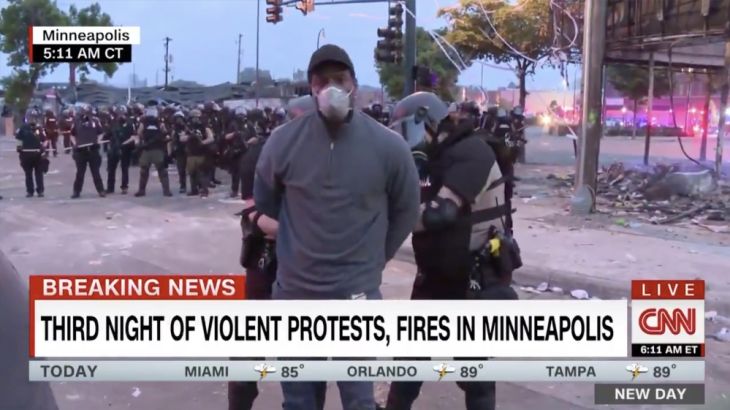
What is it like to be a Black journalist in the US right now?
The Stream meets a panel of Black journalists as the George Floyd protests continue.
On Monday, June 8 at 19:30 GMT
The video documenting the killing of George Floyd by police officers could not be more disturbing. He is handcuffed and pinned down by a Minneapolis police officer while three others look on. The officer’s knee digs deep into Floyd’s neck as he cries that he cannot breathe. He calls out for his mother, and then, he dies.
Keep reading
list of 4 itemsInside the pressures facing Quebec’s billion-dollar maple syrup industry
‘Accepted in both [worlds]’: Indonesia’s Chinese Muslims prepare for Eid
Photos: Mexico, US, Canada mesmerised by rare total solar eclipse
The event may prove a watershed moment in US history.
But for Black journalists covering this story, it is nothing new. It is the latest in a long line of such videos that grab headlines for a time and are then largely forgotten as the news cycle moves on and nothing changes.
Journalists are trained to shed light on stories and to report the experiences of people. But when Black journalists are watching videos of Black people being killed at the hands of white police officers, when they are telling stories of people being accosted for driving while Black, walking while Black and jogging while Black, they are telling their own stories.
Black journalists have said that doing their jobs at this time is “exhausting“, that they are “carrying a unique burden”, living in a “special kind of hell” and “covering a storm that never passes”. Ultimately, one said, what they are doing every day amounts to “screaming into the void”.
In this episode of The Stream, we discuss the emotional toll of being a Black journalist in the US and the impact of covering viral videos of Black death.
On this episode of The Stream, we are joined by:
Patrice Peck, @SpeakPatrice – journalist
Soledad O’Brien, @soledadobrien – journalist
Quincy J Walters, @quincyjwalters – reporter, WBUR Boston
WATCH: Why was Black CNN reporter detained while covering protests? – Al Jazeera
Black Journalists Are Exhausted – New York Times